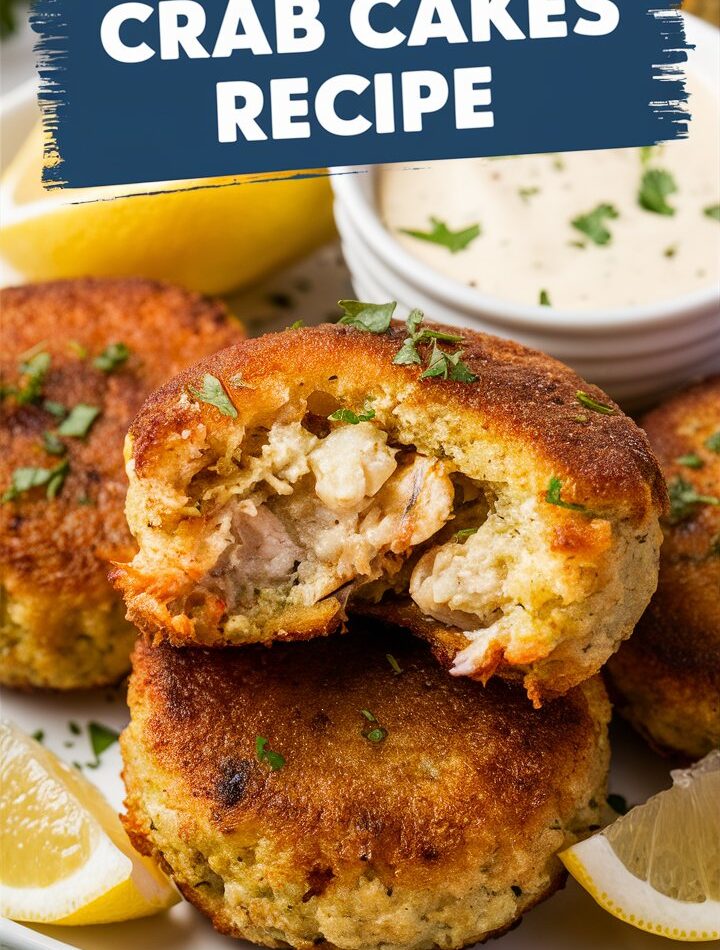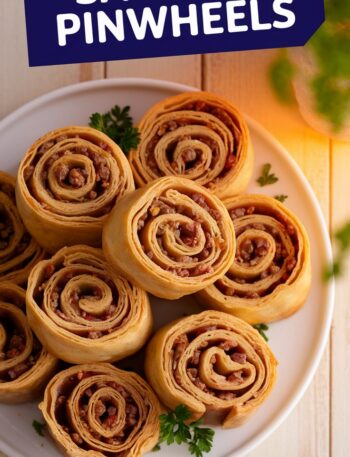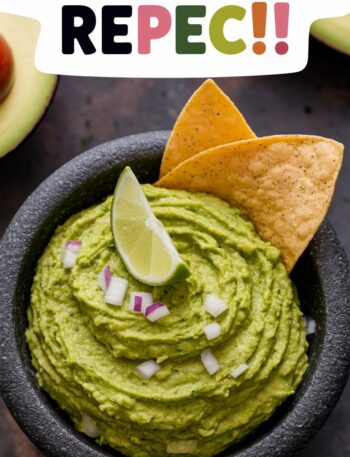Maryland is famous for its vibrant coastal culture, and one of its most beloved culinary treasures is the classic Maryland Crab Cake. Known for their meaty texture, savory flavor, and minimal fillers, Maryland-style crab cakes are a favorite in both home kitchens and high-end seafood restaurants. Unlike their fried counterparts found elsewhere, these crab cakes are traditionally baked or pan-seared, allowing the sweet flavor of lump crab meat to shine through.
In this detailed guide, you’ll discover everything you need to know—from selecting the right crab meat, to forming and baking perfect cakes, to serving suggestions, storage, and expert tips. Whether you’re a beginner or an experienced home chef, this comprehensive recipe ensures success without the mess of deep frying.
What Makes a Crab Cake “Maryland Style”?
Minimal Fillers, Maximum Flavor
Unlike crab cakes overloaded with breadcrumbs or binders, Maryland crab cakes prioritize pure crab meat, allowing its natural flavor to stand front and center. Just enough mayonnaise, mustard, and binder are used to hold the cake together—nothing more.
Old Bay Seasoning – A Regional Staple
No Maryland crab cake is complete without Old Bay Seasoning, a regional spice blend that adds a unique savory kick without overpowering the crab. It includes celery salt, red pepper, black pepper, paprika, and other spices that pair beautifully with seafood.
Baked, Not Fried
While some variations are pan-fried or deep-fried, many Marylanders prefer baking for a lighter texture and healthier preparation that still delivers crisp, golden edges.
Ingredients: What You Need for Authentic Maryland Crab Cakes
Let’s break down each component and why it matters:
🦀 For the Crab Cakes
- 1 large egg – Acts as a natural binder.
- ¼ cup mayonnaise – Adds creaminess without masking the crab.
- 2 teaspoons Dijon mustard – Provides tang and depth of flavor.
- 1 teaspoon Worcestershire sauce – A small splash of umami.
- 1 tablespoon fresh chopped parsley – Brings brightness and color.
- 1 teaspoon Old Bay seasoning – For that authentic Maryland taste.
- 1 teaspoon fresh lemon juice – Enhances seafood flavor.
- ⅛ teaspoon salt – Light seasoning since Old Bay already contains salt.
- 1 pound lump crab meat – Use fresh or pasteurized lump crab; avoid imitation.
- ⅔ cup crushed saltine crackers – Traditional binder with mild flavor.
- 2 tablespoons melted butter (optional) – For brushing the tops before baking.
🌿 For Garnish
- Fresh lemon wedges
- Chopped parsley
Equipment Checklist
Before diving into the cooking, gather the right tools:
- Mixing bowl
- Whisk
- Silicone spatula
- Measuring cups & spoons
- Rimmed baking sheet
- Parchment paper or silicone baking mat
- ½ cup measuring scoop or ice cream scoop
Having these ready will streamline your cooking and minimize cleanup.
Step-by-Step Instructions to Make Maryland Crab Cakes
Step 1: Prepare the Base Mixture
In a large mixing bowl, whisk together the egg, mayonnaise, Dijon mustard, Worcestershire sauce, lemon juice, Old Bay seasoning, salt, and parsley until smooth.
This mixture is the flavorful glue that holds the crab cakes together.
Step 2: Fold in Crab Meat and Crackers
Gently add in the lump crab meat and saltine crumbs. Using a silicone spatula, carefully fold the mixture until just combined.
⚠️ Do not overmix. You want to keep those delicate crab chunks intact for the best texture.
Step 3: Chill the Mixture
Cover the bowl with plastic wrap and refrigerate for at least 30 minutes, or up to 24 hours.
This crucial step helps the cakes hold their shape during baking and intensifies the flavors.
Step 4: Preheat Your Oven
Set your oven to 450°F (232°C). Line a baking sheet with parchment or a silicone mat, or grease it generously with butter or cooking spray.
Step 5: Form the Cakes
Using a ½-cup scoop, portion the mixture into equal mounds on the baking sheet. Gently shape into cakes without flattening too much.
Optional: Brush the tops with melted butter for added browning and richness.
Step 6: Bake to Perfection
Place in the preheated oven and bake for 12–14 minutes until the tops are golden and edges are slightly crisp.
Step 7: Serve Fresh
Remove from oven, let rest for a minute, then drizzle with lemon juice and garnish with parsley. Serve warm with your favorite sauce or side.
Expert Tips for Success
- Use fresh lump crab meat. Avoid canned or imitation products for the best flavor and texture.
- Don’t skip chilling. It’s key for helping the cakes stay together.
- Be gentle when mixing. You want visible chunks of crab.
- Customize spice levels. Increase Old Bay if you like a little heat.
- For crisper tops: Use the broiler for the last 1–2 minutes.
Serving Suggestions for Maryland Crab Cakes
Wondering how to build a complete meal around your crab cakes? Here are some delicious pairing ideas:
🥗 Light & Fresh
- Mixed greens with lemon vinaigrette
- Arugula salad with shaved parmesan
🥔 Comfort Sides
- Garlic mashed potatoes
- Roasted sweet potato wedges
- Baked macaroni and cheese
🌽 Summery Combos
- Corn on the cob with herbed butter
- Coleslaw with apple cider vinegar dressing
- Tomato and cucumber salad
🍽️ Sauces to Try
- Classic tartar sauce
- Spicy aioli (mayo + sriracha + lemon)
- Cocktail sauce
- Lemon-dill yogurt sauce
Storage, Freezing, and Reheating Tips
🧊 Refrigerator Storage
- Store leftovers in an airtight container in the fridge for up to 5 days.
- Use parchment between layers if stacking.
❄️ Freezer Instructions
- Unbaked: Shape, then freeze individually on a tray. Once firm, store in a freezer bag for up to 3 months.
- Baked: Cool completely, then wrap and freeze the same way.
🔥 Reheating Options
- Oven: 350°F for 10–15 minutes.
- Stovetop: Sauté over medium heat until warmed through.
- Microwave: Use only if you’re in a rush—texture may suffer slightly.
Common Mistakes to Avoid
Even simple recipes have potential pitfalls. Here’s what not to do:
| Mistake | Why It Matters |
|---|---|
| Overmixing | Breaks the crab meat and creates dense cakes |
| Skipping chill time | Cakes may fall apart during baking |
| Using poor quality crab | Imitation crab ruins the flavor |
| Not greasing baking sheet | Leads to sticking and breaking |
| Wrong baking temp | Too low = soggy, not golden |
FAQs – Your Crab Cake Questions Answered
1. Can I use canned crab meat?
It’s possible, but not recommended. For authentic taste and texture, fresh lump crab meat is best.
2. Can I pan-fry these instead of baking?
Yes, you can pan-fry with a little oil on medium heat, about 3–4 minutes per side. Baking, however, is easier and less oily.
3. What’s the difference between jumbo lump and regular lump crab meat?
Jumbo lump comes from the muscles of the crab’s swimming legs and is larger and more expensive. Lump is smaller but still tender and flavorful—ideal for this recipe.
4. Are these gluten-free?
Not by default, since saltines contain gluten. You can substitute gluten-free crackers or breadcrumbs.
5. Can I make these ahead of time?
Absolutely. Prepare the mixture up to a day in advance, or freeze shaped, unbaked cakes for later.
Nutritional Breakdown (Per Crab Cake)
This is an estimate for one crab cake based on the original recipe:
- Calories: 190
- Protein: 18g
- Fat: 11g
- Carbs: 6g
- Fiber: 0.5g
- Sugar: 1g
Macros will vary if butter or extra sauce is added.
Creative Variations of Maryland Crab Cakes
Want to mix it up? Try these fun twists:
- Spicy Sriracha Crab Cakes – Add 1 tsp sriracha and cayenne to the mix.
- Herb-Infused – Mix in fresh dill, tarragon, or chives.
- Mini Crab Cakes – Make bite-sized versions for party appetizers.
- Crab Cake Sliders – Serve on small buns with spicy mayo and lettuce.
Final Thoughts: A Coastal Classic You Can Master at Home
There’s something timeless about the simplicity and flavor of a well-made Maryland Crab Cake. With this in-depth guide, you now have everything you need to recreate the magic in your own kitchen—whether you’re preparing a casual meal, a dinner party, or a romantic seafood night at home.




